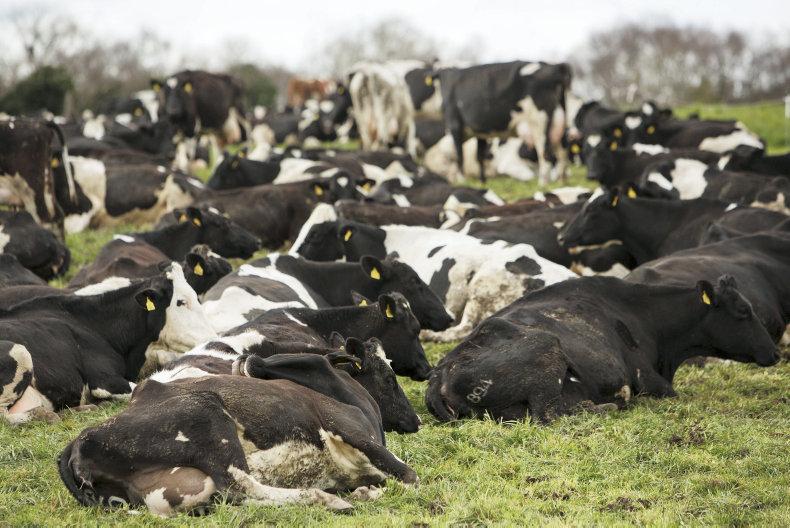A new study published in the Proceedings of the National Academy of Sciences of the United States of America has found that a feed additive can reduce the amount of greenhouse gas emissions from cattle.
Methane emission from the ruminant livestock sector, such as cows and sheep, represents a significant amount of greenhouse gases which contribute to climate change. This also contributes to energy loss and a reduction in feed efficacy of up to 12%.
According to the study, methane is formed when short fatty acids are absorbed and metabolized by the animals.The gas then escapes via eructation and breathing of the animals into the atmosphere.
But small quantities of the 3-nitrooxypropanol (3-NOP) molecule were found to inhibit this process and "persistently reduce enteric methane emissions from livestock without apparent negative side effects". This was achieved through action on an enzyme which catalyzes the methane-forming step in the rumen fermentation.
The tests were carried out both in lab conditions and in live animals. Reductions in methane emissions were observed when using 3-NOP "at concentrations that do not affect the growth of nonmethanogenic bacteria in the rumen".
"At the very low effective concentrations recently applied in vivo (dairy and beef cattle), 3-NOP appears to inhibit only methanogens and thus to be attractive for development as a feed supplement," the researchers wrote.
Read more
Climate change talk hears agriculture should not get special treatment
A new study published in the Proceedings of the National Academy of Sciences of the United States of America has found that a feed additive can reduce the amount of greenhouse gas emissions from cattle.
Methane emission from the ruminant livestock sector, such as cows and sheep, represents a significant amount of greenhouse gases which contribute to climate change. This also contributes to energy loss and a reduction in feed efficacy of up to 12%.
According to the study, methane is formed when short fatty acids are absorbed and metabolized by the animals.The gas then escapes via eructation and breathing of the animals into the atmosphere.
But small quantities of the 3-nitrooxypropanol (3-NOP) molecule were found to inhibit this process and "persistently reduce enteric methane emissions from livestock without apparent negative side effects". This was achieved through action on an enzyme which catalyzes the methane-forming step in the rumen fermentation.
The tests were carried out both in lab conditions and in live animals. Reductions in methane emissions were observed when using 3-NOP "at concentrations that do not affect the growth of nonmethanogenic bacteria in the rumen".
"At the very low effective concentrations recently applied in vivo (dairy and beef cattle), 3-NOP appears to inhibit only methanogens and thus to be attractive for development as a feed supplement," the researchers wrote.
Read more
Climate change talk hears agriculture should not get special treatment






 This is a subscriber-only article
This is a subscriber-only article






SHARING OPTIONS: